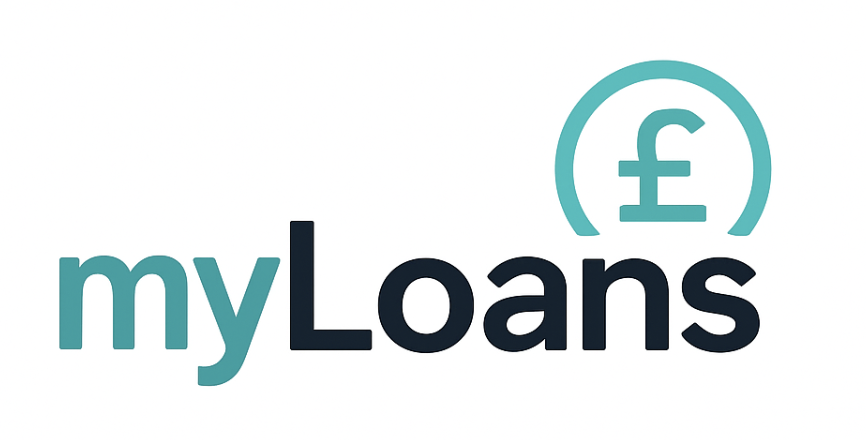Alternatives to Quick Cash Loans Explained
In today’s fast-paced world, financial emergencies can happen at any moment. From a broken boiler in winter to an unexpected car repair, many households across the UK find themselves looking for immediate financial help. In such situations, quick cash loans, also known as payday cash loans or emergency cash loans, are often marketed as an easy solution. But are they really the best choice? And what safer alternatives exist for UK borrowers?
This guide will explain how quick cash loans work, highlight their risks, and explore more sustainable options. Whether you’re searching for “quick cash loans no credit check” or considering payday quick cash loans, understanding your options is crucial to making a sound financial decision.
What Are Quick Cash Loans?
Quick cash loans are short-term, small-amount loans designed to provide immediate access to money. They are often advertised as “same-day loans” or “cash quick cash” solutions, with funds hitting your account within hours of approval.
Unlike personal loans from banks or building societies, these loans typically:
-
Carry very high interest rates.
-
Must be repaid within weeks, often on your next payday.
-
Involve limited affordability checks, especially from less reputable lenders.
For example, a payday cash loan might allow you to borrow £200 to cover urgent expenses, but you could end up repaying £250–£300 once fees and interest are added.
Why Do People Turn to Quick Cash Loans in the UK?
There are several reasons borrowers consider payday quick cash loans or emergency cash loans:
-
Speed – approval and payout can happen the same day.
-
Accessibility – many lenders advertise “quick cash loans no credit check,” making them attractive for people with poor credit histories.
-
Convenience – most applications are online, with minimal paperwork.
-
Urgency – when faced with unexpected bills, borrowers often prioritise speed over cost.
This combination makes payday cash loans appear appealing during stressful times. However, they can create bigger problems in the long run.
The Risks of Quick Cash Loans
While quick cash loans promise instant relief, they come with serious risks.
High Interest Rates
The Financial Conduct Authority (FCA), which regulates UK lenders, caps payday lending costs at 0.8% per day, with a maximum default fee of £15, and ensures borrowers never repay more than 100% of the loan. Even with these caps, payday cash loans remain among the most expensive forms of credit.
Short Repayment Terms
Most quick cash loans require repayment within 30 days or by your next payday. If you can’t repay on time, you may face late fees and further financial strain.
The Debt Cycle
Borrowers often roll over or take out new loans to cover old ones, leading to a dangerous cycle of borrowing and rising debt.
Impact on Credit Scores
While many lenders offer “no credit check” options, most reputable UK lenders do perform soft searches. Defaults or late payments on quick personal loans can damage your credit file, making future borrowing more difficult.
Hidden Fees
Some payday quick cash loans come with additional charges for processing, late payments, or rollovers. These hidden costs can significantly increase your total repayment.
Safer Alternatives to Quick Cash Loans in the UK
Before committing to payday cash loans, it’s worth exploring alternatives that may provide more sustainable and affordable financial relief.
1. Credit Union Loans
Credit unions are community-based, not-for-profit financial institutions. They offer small personal loans at far lower interest rates than payday lenders, and they are FCA-regulated.
-
APRs are capped at 42.6% in England, Scotland, and Wales.
-
Flexible repayment schedules tailored to income.
-
No hidden fees.
For many people searching for “quick personal loans,” a credit union loan is a safer alternative.
2. Overdrafts and Bank Options
If you already have a current account, using an arranged overdraft may be cheaper than taking out payday quick cash loans. While overdraft fees vary, many banks in the UK now cap daily charges, and some offer interest-free buffers.
3. Employer Salary Advances
Some UK employers partner with companies like Salary Finance or Wagestream to offer employees early access to earned wages. This acts like a salary advance, giving you emergency cash loans without the high interest of payday lenders.
4. Credit Card Cash Advances
If you have a credit card, withdrawing money as a cash advance may cost less than payday loans. However, it’s important to note:
-
Cash advances come with fees (usually around 3%).
-
Interest is often higher than standard purchases.
-
Interest is charged immediately, with no grace period.
Still, in urgent situations, they are usually less costly than payday cash loans.
5. Community and Government Support
UK residents struggling with emergency costs may be eligible for support through:
-
Local Welfare Assistance Schemes run by councils, which may offer grants, vouchers, or interest-free loans.
-
Budgeting Loans (for those on certain benefits), providing interest-free borrowing for essentials.
-
Charities and non-profits, such as Citizens Advice or StepChange, offering both financial help and debt advice.
6. Borrowing from Friends or Family
While sometimes uncomfortable, borrowing small sums from trusted friends or family can provide interest-free financial relief and help avoid the pitfalls of payday quick cash loans. Setting clear repayment terms can prevent misunderstandings.
Building an Emergency Fund: A Long-Term Alternative
The best long-term solution to avoid reliance on quick cash loans is to build an emergency fund. Even small, regular savings can create a safety net.
-
Start small: save £10–£20 per month.
-
Automate: set up a standing order into a savings account.
-
Set goals: aim for three to six months’ worth of expenses.
Having this buffer ensures that when financial shocks occur, you’re not forced to turn to payday cash loans.
Tips for Borrowers Considering Quick Cash Loans
If you’re still considering payday cash loans or emergency cash loans, keep these tips in mind:
-
Check FCA authorisation – only borrow from lenders regulated by the Financial Conduct Authority.
-
Use soft search tools – many lenders let you check eligibility without impacting your credit score.
-
Borrow only what you need – avoid taking out larger loans than necessary.
-
Have a repayment plan – know how you will repay on time to avoid extra fees.
-
Avoid repeat borrowing – payday quick cash loans should never become a regular source of credit.
Final Thoughts
Quick cash loans may seem like a simple solution to urgent financial needs, but in the UK they remain one of the most expensive borrowing options. Payday cash loans, emergency cash loans, and “quick cash loans no credit check” carry risks of high interest, short repayment terms, and potential debt spirals.
Safer alternatives exist — from credit union loans and employer salary advances to overdrafts and government assistance schemes. For long-term security, building an emergency fund is the most effective way to avoid dependence on payday quick cash loans.
By understanding your options and borrowing responsibly, you can navigate financial challenges without falling into the costly traps associated with quick cash loans.
Alternatives to Payday Loans | Safer Borrowing Options
Payday loans are often marketed as a quick fix for cash emergencies, but they are not the only option available. Whether you’re facing an unexpected bill, car repair, or temporary cash shortfall, there are several alternatives to payday loans that may offer lower...
Payday Loans with Bad Credit | Direct Lender Options
If you’ve been refused credit elsewhere and are wondering whether you can still get a payday loan with bad credit, you’re not alone. Thousands of people in the UK search every month for options like “payday loans with bad credit” or “direct lender payday loans”. While...
Personal Loan Debt Consolidation UK – Is It Right for You?
Juggling multiple credit cards, overdrafts, or loans can be stressful and expensive. A debt consolidation loan allows you to combine everything into a single monthly repayment, often at a lower interest rate. In 2025, UK lenders from high street banks to online...
Emergency Loans UK – How to Borrow Fast in 2025
When an urgent expense hits — like car repairs, medical bills, or a broken boiler — quick access to funds can be essential. In 2025, emergency loans in the UK provide a way to borrow fast, with some lenders offering same-day decisions and payouts. This guide explains...
Top 10 Personal Loan Providers UK 2025 – Rates, Features & Eligibility
The UK personal loan market in 2025 offers more choice than ever, with banks, supermarkets, online lenders, and credit unions all competing for borrowers. The best deal for you depends on your credit score, loan size, and repayment term — but comparing providers side...
Best Debt Consolidation Loans UK 2025 | Top Options
Managing multiple debts can feel overwhelming, especially with credit cards, overdrafts, and personal loans all charging different interest rates. A debt consolidation loan can simplify your finances by rolling everything into one fixed monthly repayment — often at a...
Best Bad Credit Loans UK 2025 – Top Lenders Compared
Having a poor credit score, CCJs, or past defaults doesn’t mean borrowing is out of reach. In 2025, several UK lenders specialise in products designed for people with bad credit — offering smaller loans, flexible repayment terms, and eligibility checks that won’t harm...
Home Repair Loans UK – How to Cover Unexpected Costs in 2025
A leaking roof, broken boiler, or urgent plumbing issue can quickly turn into an expensive problem — often when savings aren’t available. In 2025, home repair loans in the UK provide a way to spread the cost of essential fixes into manageable monthly repayments. This...
Green Energy Loans UK – How to Finance Eco-Friendly Home Improvements in 2025
Eco-friendly upgrades such as solar panels, insulation, heat pumps, and EV chargers can cut energy bills and boost property value — but they require a significant upfront investment. In 2025, green energy loans in the UK provide a way to spread the cost of sustainable...
Moving House Loans UK – How to Cover Relocation Costs in 2025
From deposits and removal vans to solicitor fees and new furniture, moving house in the UK can quickly add up to thousands of pounds. Not everyone has savings set aside to cover these costs upfront. In 2025, moving house loans in the UK provide a way to spread...
Education Loans UK – How to Fund Studies and Professional Courses in 2025
Not all education in the UK is covered by government student finance. Postgraduate degrees, professional qualifications, and private training often require self-funding — with tuition fees and course costs running into thousands of pounds. In 2025, education loans in...
Holiday Loans UK – How to Spread the Cost of Travel in 2025
Holidays can be some of the most rewarding experiences of the year, but they often come with a price tag that’s hard to cover upfront. From flights and hotels to all-inclusive packages and once-in-a-lifetime trips, the costs can add up quickly. In 2025, holiday loans...
Best Personal Loans UK 2025 – Top Lenders Compared
The UK personal loan market in 2025 is more competitive than ever, with high street banks, supermarkets, online lenders, and credit unions all offering products to suit different needs. Choosing the right provider can save you hundreds in interest and ensure...
Medical Loans UK – How to Finance Healthcare Costs in 2025
While the NHS covers most essential treatment, waiting lists, private care, and specialist procedures mean many people face out-of-pocket medical expenses. From dental work and fertility treatment to cosmetic surgery and urgent private healthcare, costs can run into...
Car Loans UK – Personal Loan vs Hire Purchase vs PCP in 2025
Buying a car in 2025 usually means more than just choosing the right vehicle — it also means deciding how to pay for it. In the UK, the three main options are a personal loan, hire purchase (HP), or personal contract purchase (PCP). Each has its own advantages,...
















